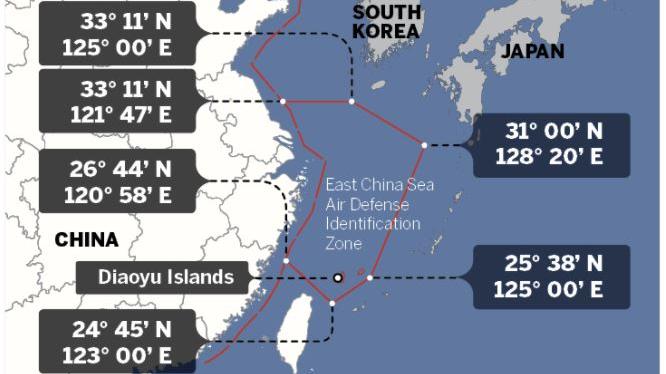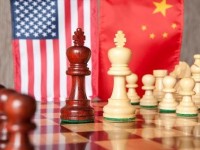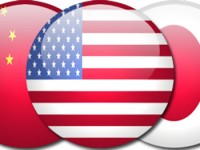
Ryan Hass, David M. Rubenstein Fellow, Brookings Institution
Dec 20, 2017
Despite its lower profile, the dispute in the East China Sea may carry greater risk of drawing the United States into conflict with China than the various disputes in the South China Sea.
He Yafei, Former Vice Minister of Foreign Affairs
Aug 16, 2016
Asia is famous for its multiple civilizations and their core value systems that have guided Asian nations since ancient times. Recent decades have seen China making great contributions to regional economic growth and unity with its peaceful and rapid development. Common development will always be the hallmark of this great region.

Andi Zhou, Program Assistant, EastWest Institute
Jun 24, 2015
Tensions are rising in the South China Sea — so why is the East China Sea so calm?
George Koo, Retired International Business Consultant and Contributor to Asia Times
May 06, 2015
Japan’s PM Abe’s amnesia toward past military crimes and general xenophobia calls into question whether a U.S. alliance with Japan is in the U.S.’s best interest – especially in dealing with the challenges on the Korean peninsula.

Zhang Tuosheng, Principal Researcher at Grandview Institution, and Academic Committee Member of Center for International Security and Strategy at Tsinghua University
Apr 09, 2015
Previous U.S.-China issues of friction are becoming magnified again: Taiwai-Strait militarization, tension on the Korean Peninsula, maritime tension in the East and South China Seas, and security issues in cyberspace. Zhang Tuosheng calls on both nations to improve their desire to not seek conflict as a solution, strengthen and improve their liaison mechanism, enhance the role of research, and hold joint meetings.
Ted Galen Carpenter, Senior Fellow, Randolph Bourne Institute
Jan 30, 2015
America’s long-standing affront with North Korea needs fresh approaches, especially considering its increasingly disruptive international actions. Ted Carpenter proposes that instead of trying to increase unilateral sanctions on Pyongyang, Washington should make a concerted effort to reduce tensions with Kim Jong-un’s regime by creating a united front with China and Russia.
Jan 16, 2015
Despite the low profile and low-level nature with no substantial results, that Chinese and Japanese defense and maritime officials did meet and talk means a lot
Feng Zhaokui, Honorary Academician, Chinese Academy of Social Sciences
Dec 05, 2014
The Xi-Abe meeting during APEC marked an important step towards improving relations between the two countries. One meeting is far from enough for the two to bridge fundamental differences on issues relating to history and territorial disputes, but the two sides importantly reached a principled consensus on managing their differences.

Franz-Stefan Gady, Associate Editor, Diplomat
Nov 12, 2014
Japan and the US are revising defense guidelines for the first time since 1997, and though not explicit, China’s sovereignty claims are the cause. Yet both Japan and China are making slight efforts to defuse escalation and reemphasize communication.
Zhang Tuosheng, Principal Researcher at Grandview Institution, and Academic Committee Member of Center for International Security and Strategy at Tsinghua University
Nov 07, 2014
Two years after the zenith of tension on Diaoyu Islands, the APEC conference in Beijing presents an opportunity for China-Japan bilateral relations to move forward if a common understanding of history and sovereignty is reached.
Back to Top

- China-US Focus builds trust and understanding between the U.S. and China through open dialogue among thought leaders.
- Our Offerings
- Topics
- Videos
- Podcasts
- Columnists
- Research Reports
- Focus Digest
- Stay Connected
-
Thanks for signing up!
- Get the latest stories from China-US Focus weekly.